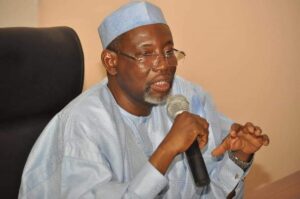W’Bank urges FG to stop subsidy payment, increase petrol price to N750/litre
The World Bank says the federal government may still be paying for petrol subsidy as fuel prices in Nigeria are currently not cost-reflective.
It said Nigerians should pay about N750 per litre as against the current price of N650 in some places.
This was disclosed by the Lead Economist for the World Bank in Nigeria, Alex Sienaert, during his presentation in Abuja of the Nigeria Development Update, December 2023 edition, entitled “Turning The Corner (from reforms and renewed hope to results).”
During the hybrid event, he mentioned that fuel should cost N750 per litre according to today’s official exchange rate.
According to Sienaert, “If we estimate what is the cost reflective of retail PMS price of the would-be and assume that importation is done at the official FX rate, it does seem that petrol prices are not fully adjusting to market conditions so that hints at the partial return of the subsidy.
“Of course, the liberalisation is happening with the parallel rates, the main supplier. The price would be even higher. These are just estimates to give you a sense of what cost-reflective pricing most likely looks like.
“We think the petrol price should be around N750 per litre more than the N650 per litre currently paid by Nigerians.”
He emphasised that to ensure the government reaps the rewards of its audacious reforms, the bank advises it to take further actions.
The Petroleum and Natural Gas Senior Staff Association of Nigeria (PENGASSAN) announced in October that the government is still paying subsidies on petrol due to the cost of crude oil in the international market and the exchange rate.
Speaking on Channels Television’s Politics Today, National President of PENGASSAN, Festus Osifo, said due to the cost of crude oil in the international market and the exchange rate, the government still pays subsidies on petrol.
“They [government] are paying subsidy today. In reality, today, there is a subsidy because, as of when the earlier price was determined, the price of crude in the international market was around $80 for a barrel. But today, it has moved to about $93/94 per barrel for Brent crude. So, because it has moved, the price [of petroleum] also needed to move,” he said.
He said two things must happen before the government can stop subsidising petroleum.
“The only reason the price will not move is when you can manage your exchange rate effectively, pump in supply, and bring down the exchange rate.
“If the exchange rate comes down today, we will not pay a subsidy. But with the exchange rate value and the price of crude oil in the international market, we have introduced a subsidy,” the PENGASSAN boss said.
Analysts said the return of fuel subsidy is a major setback for Tinubu’s economic reform agenda. It is also likely to lead to increased government spending and deficit.
Findings showed the federal government is now projecting to spend N9.18 trillion more than it will earn next year.
The increased budget deficit in 2024 implies that the government may spend less on capital projects and human capital, which are critical in spurring economic growth and delivering jobs.




